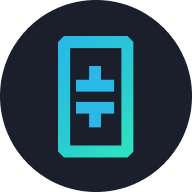Theta Validator Network: How Deutsche Telekom is Revolutionizing Blockchain and Video Streaming
Introduction to the Theta Validator Network
The Theta Validator Network is a cutting-edge decentralized blockchain platform designed to transform video streaming, AI computing, and edge computing. By leveraging blockchain technology, Theta enhances efficiency, reduces costs, and improves the quality of content delivery. With its innovative dual-token system and decentralized architecture, Theta is setting new benchmarks in the blockchain and media industries.
A significant milestone for Theta was the announcement that Deutsche Telekom, one of the world’s leading telecommunications companies, has joined as an enterprise validator node operator. This partnership underscores the growing enterprise adoption of blockchain technology and solidifies Theta’s position as a leader in the decentralized ecosystem.
Deutsche Telekom’s Role as a Theta Validator Node Operator
Deutsche Telekom’s participation in the Theta Validator Network marks a pivotal moment in blockchain adoption. As an enterprise validator node operator, Deutsche Telekom plays a crucial role in the network’s operations:
Staking THETA tokens: By staking THETA, Deutsche Telekom strengthens the network’s security and governance.
Earning TFUEL rewards: In return for staking, the company earns TFUEL, the operational token used for gas fees and payments within the Theta ecosystem.
Enhancing network reliability: Deutsche Telekom’s robust infrastructure ensures secure and reliable transaction validation, further decentralizing the network.
This move highlights Deutsche Telekom’s commitment to blockchain technology, as the company has previously supported other major blockchain networks, including Ethereum, Polkadot, and Chainlink.
Understanding Theta Network’s Decentralized Architecture
The Theta Network is built on a decentralized architecture that addresses the inefficiencies of traditional centralized content delivery networks (CDNs). This architecture is particularly suited for AI-heavy and real-time processing environments. Key components of Theta’s architecture include:
Enterprise Validator Nodes: Operated by major corporations like Deutsche Telekom, Google, and Samsung, these nodes ensure the network’s security and scalability.
Guardian Nodes: These nodes provide an additional layer of security by validating transactions and blocks proposed by validator nodes.
Edge Nodes: These nodes allow users to share their bandwidth and computing resources, earning TFUEL as rewards.
The network employs a multi-level Byzantine Fault Tolerance (BFT) consensus mechanism, ensuring high throughput and robust security.
The Dual-Token System: THETA and TFUEL
Theta Network operates on a dual-token system designed to balance governance and operational needs:
THETA: The governance token, used for staking and participating in the network’s decision-making processes.
TFUEL: The operational token, used for gas fees, micropayments, and rewarding users who share their bandwidth and computing resources.
This dual-token system incentivizes participation while maintaining the network’s decentralization and efficiency.
Theta EdgeCloud: Powering AI and Media Applications
A standout feature of Theta is its EdgeCloud, a decentralized hybrid cloud-edge computing platform. By utilizing distributed GPU capacity, Theta EdgeCloud supports a variety of applications, including:
Generative AI: Enhancing AI models with decentralized computing power.
Video Rendering: Reducing costs and improving efficiency for video production.
3D Modeling: Supporting complex computational tasks for industries like gaming and design.
This innovative approach positions Theta as a leader in both blockchain and advanced technology applications.
Enterprise Adoption and Strategic Partnerships
Theta Network’s growing list of enterprise partnerships underscores its potential for real-world applications. In addition to Deutsche Telekom, Theta has collaborated with major corporations such as Google, Samsung, and Sony. These partnerships:
Enhance the network’s credibility and adoption.
Demonstrate the scalability and reliability of Theta’s infrastructure.
Highlight the increasing interest of traditional enterprises in blockchain technology.
Incentives for Users: Sharing Bandwidth and Computing Resources
One of the unique aspects of the Theta Validator Network is its ability to incentivize users to share their resources. By contributing bandwidth and computing power, users earn TFUEL rewards, which can be used within the ecosystem. This model supports the network’s decentralized infrastructure while fostering a more inclusive and participatory ecosystem.
Addressing Challenges in Traditional Content Delivery Networks
Traditional CDNs face challenges such as high costs, latency issues, and inefficiencies in last-mile delivery. Theta’s decentralized architecture addresses these challenges by:
Reducing reliance on centralized servers.
Leveraging a global network of edge nodes to deliver content more efficiently.
Lowering costs for content creators and distributors.
This makes Theta an attractive solution for industries that rely heavily on video streaming and real-time data processing.
The Broader Trend: Enterprises Embracing Blockchain
Deutsche Telekom’s involvement in the Theta Validator Network reflects a broader trend of traditional enterprises adopting blockchain technology. By participating in decentralized networks, companies can:
Enhance their technological capabilities.
Explore new business models and revenue streams.
Contribute to the development of secure and scalable infrastructure.
This trend highlights the growing recognition of blockchain’s potential to transform industries beyond finance, including media, telecommunications, and AI.
Conclusion
The Theta Validator Network is at the forefront of blockchain innovation, offering a decentralized solution for video streaming, AI computing, and edge computing. Deutsche Telekom’s role as a validator node operator not only enhances the network’s credibility and decentralization but also signifies a major step toward enterprise adoption of blockchain technology.
With its dual-token system, decentralized architecture, and strategic partnerships, Theta is well-positioned to address the challenges of traditional content delivery networks and drive the next wave of innovation in blockchain and media. As more enterprises recognize the potential of decentralized networks, Theta’s role in shaping the future of technology is set to grow even further.
© 2025 OKX. Dieser Artikel darf in seiner Gesamtheit vervielfältigt oder verbreitet oder es dürfen Auszüge von 100 Wörtern oder weniger dieses Artikels verwendet werden, sofern eine solche Nutzung nicht kommerziell erfolgt. Bei jeder Vervielfältigung oder Verbreitung des gesamten Artikels muss auch deutlich angegeben werden: „Dieser Artikel ist © 2025 OKX und wird mit Genehmigung verwendet.“ Erlaubte Auszüge müssen den Namen des Artikels zitieren und eine Quellenangabe enthalten, z. B. „Artikelname, [Name des Autors, falls zutreffend], © 2025 OKX.“ Einige Inhalte können durch künstliche Intelligenz (KI) generiert oder unterstützt worden sein. Es sind keine abgeleiteten Werke oder andere Verwendungen dieses Artikels erlaubt.


